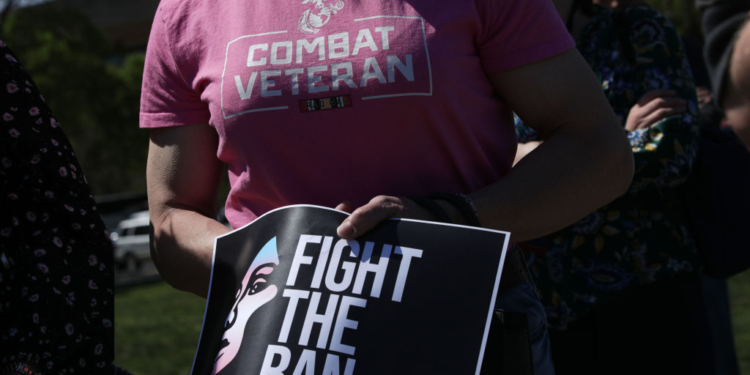Transgender military service members could soon find themselves out of a job after the Pentagon announced it plans to boot military members who don’t meet specific requirements under its new policy.
According to CNN, the announcement came via an official guidance that was made public in a Wednesday court filing.
“Service members who have a current diagnosis or history of, or exhibit symptoms consistent with, gender dysphoria will be processed for separation from military service. The Department only recognizes two sexes: male and female. An individual’s sex is immutable, unchanging during a person’s life. All service members will only serve in accordance with their sex,” a memo outlining the policy read.
President Donald Trump signed an executive order in January, directing the Pentagon to implement policies that deem transgender service members as incompatible with military service. CNN reported that as of 2018, there were approximately 14,000 transgender service members, according to estimates from an independent research institute.
There are, however, exceptions if there is evidence supporting the applicants “warfighting capabilities” and if the individual would be willing to work with all standards associated with their sex. Applicants who further demonstrate “36 months of stability” in their sex with no “clinically significant distress or impairment.”
They must further be able to demonstrate they have never tried to transition to any other sex than from that that was assigned at birth.
The policy is now part of a lawsuit that challenged Trump’s executive order. U.S. District Judge Ana Reyes said the executive order was “arguably rampant with animus,” which CNN reported would mean the judge would likely to back-up transgender service members and those hoping to join.
Judge Reyes was appointed by former President Joe Biden and agreed that there would be no decision on whether to indefinitely block the order until she saw the Pentagon’s official guidance on implementing its policy. Another hearing is due to be held next month.
Trump put in a similar policy in 2017, which was upheld by the U.S. Supreme Court in 2019, then removed by Biden in 2021.

























 Continue with Google
Continue with Google